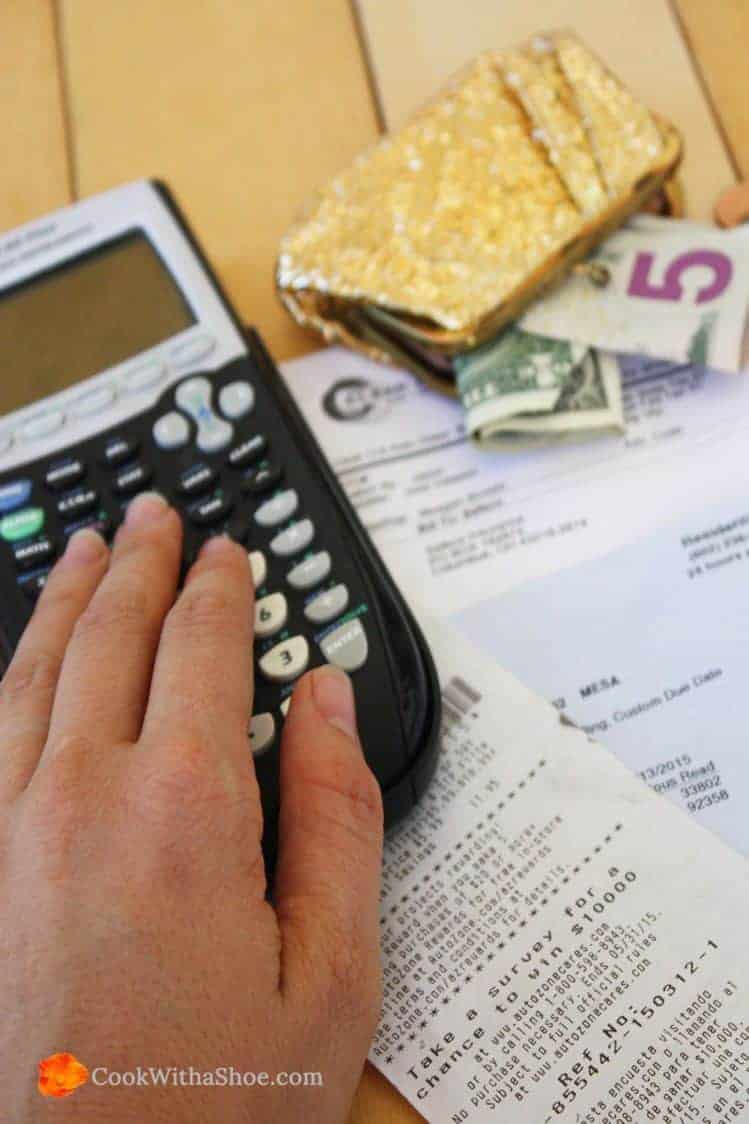Save time and money with my best-selling resources in Complete Change Your Finances Bundle.
Can I share a tool that has given me the ability to pay cash for my husband’s education and not owe one cent to anyone?
I’ll let you in on a secret, many people try to use this tool, but in much more complicated way than it needs to be.

So what is this super awesome tool that you will find helpful?
It is a Plan. A road map or directions for your money. Some people call it a budget, which is alright, but it brings up so many negative emotions and past failures, that many don’t stick with it.
I like the word Plan better.
Regardless of personality types, most people don’t like to just drift with no direction in life, yet far too many drift along with their finances and then wonder why they are stuck in the same place for years on end.
It doesn’t have to be this way. You can set up a simple plan for your money which is easy to follow.
Tips to making a plan for your money
Be honest with yourself
Are there things you would like to change about your current financial situation? Would you like to be in the same place this time next year with your money as you are right now?
Earlier in this series on making a successful plan for your money, I challenge you to review the past year financially.
I have this theory that if we take 30 minutes to own responsibility for the mistakes made, as well as acknowledge the progress and accomplishments, it will be easier to stick to your money plan and achieve your goals.
A budget… oops a plan is not as much about crunching the numbers. In fact, crunching numbers is only a small percentage of what it takes to successfully live on a budget.
Rather it comes from having a mindset shift to where a money plan is simply guiding you towards the path of financial freedom.
Once you have fully accepted the responsibility for your decisions, you can draw a line in the sand and say never again will I make that same mistake.
This declaration will motivate you to change your behavior and propel you on the path of being smart with your money.

Dream a little
What are the dreams you have for your family which are being hindered due to lack of money? What could you do if you didn’t have payments?
Your dreams are your Why. It’s important to know what motivates you to actively pursue your goal and be willing to go through the mundane days to finally achieve your dreams. Without a Why, budgeting your money is too much work and you won’t stick with it.
What is your top financial goal for this coming year? Get out of debt? Build some savings? Go on a really nice vacation?
Putting a name to your dreams and making them visual will help speed up the progress, as well as keeping you focused.
Plan for coming expenses
Along with reviewing the past year, you need to spend part of your thirty minutes thinking about the upcoming year and any expenses you know will be coming.
Do you have medical expenses or are you planning a vacation? What annual expenses do you have? Were there some situations which came up last year and have a good possibility of returning again in the future?
All of these are opportunities to put aside a portion of the final cost each month into a savings account. When the bill comes due, you will already have the money.
I can’t tell you how much less stress you have, when all you need to do is to transfer the money into your checking account and pay it. Scrambling for money at the last minute will become a distant memory!
And you will be able to know with accuracy how much extra money you do have to put towards your main financial priority.
Number crunching
So how do you actually reach your dreams? If you had $10,000 on a credit card that you want to pay off in 12 months (or whatever your financial goal is), follow these steps.
First, make sure all your necessities are covered by your written monthly money plan.
Second, break down the $10,000 into manageable bites, dividing by 12 payments. Add this amount, $833.33, into your monthly budget immediately after your basic living expenses.
Do this and you will guarantee there will be money towards paying off this debt, before you start spending money on unessential purchases.
Tracking your spending will enable you to see where it is possible to cut back. If you can cut back on certain categories, you can then add that money to paying off your credit card.
Continuing the example, let’s say you have been able to earmark $600 for the credit card between adding a line item into your budget after your basic expenses and the money you were able to trim off your spending categories.
You still need to come up with $233.33 each month. This is the time to look for ways to bring in extra income with a side hustle, selling clothes on Ebay, or picking up a part time job.

Making a plan for your money doesn’t have to be hard and it gives guidance to your spending throughout the year.
I just decide where the priority for my money needs to be and then use a plan to help me reach those dreams.
My plan for next year is to save up enough money for the duration of my husband’s education by April. Once that is marked off, fully funding my three month emergency fund is next.
The pivotal point between failing and winning with a financial plan is when you have become so tired of the way thing are with your money and you desperately want change. You are willing to do whatever it takes to improve your situation.
Take half an hour to think about what derailed your budget last year, any coming expenses that you know of, what is your money dream for the coming year and what are the steps to get there. I promise this simple exercise will help you build a strong plan for your money for the future and you will be able to make real progress.
Check out the other posts in this series. How to use the power of focus for best money results and How to review your year to plan a powerful budget.
Do you need the Planning a Successful Budget worksheet to get you started?
Like this post? Check out all the rest in :
- Successful Budget Tips Series

Hi! I’m Charissa. I’m on a mission to help hardworking women overcome money struggles and gain financial peace with a Biblical perspective so they can have the freedom to impact their families and communities. Ready to make some changes that will impact your finances in 2020? Click here to get a free worksheet to help you make it happen!





Due to having some unplanned medical expenses my budget for the year has been shot. I love that your planning printable allows you to acknowledge your financial mistakes to help be prepared for future “unplanned” events. I am hoping to do better in the upcoming year.
Yeah, I’ve been hit with unplanned medical expenses before. Ugg! Now I budget quite a bit of money for medical expenses each month, even if I don’t use it all in one month, I will soon. I am glad you found the printable helpful, Jennifer! Planning ahead for some of those expenses now means you area already doing better with your budget! Keep up the good work my friend.